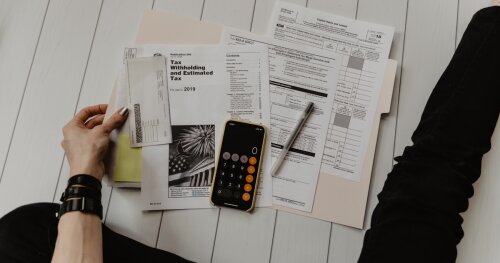Best International Trade Law Lawyers in Indonesia
Share your needs with us, get contacted by law firms.
Free. Takes 2 min.
Or refine your search by selecting a city:
List of the best lawyers in Indonesia
About International Trade Law in Indonesia
International Trade Law in Indonesia encompasses the laws and regulations that govern trade activities between Indonesia and other countries. As a member of the World Trade Organization (WTO) and a participant in various international trade agreements, Indonesia's trade laws are designed to facilitate import and export activities while protecting national interests. These laws cover a wide range of areas including tariffs, trade barriers, customs regulations, and dispute resolution mechanisms. The Indonesian government continuously updates these laws to align with international developments and to promote economic growth.
Why You May Need a Lawyer
There are several situations where individuals or businesses may require legal assistance in the realm of International Trade Law in Indonesia:
- Navigating complex import and export regulations or compliance requirements.
- Understanding and applying for applicable trade tariffs and exemptions.
- Resolving trade disputes or litigation between international parties.
- Structuring and negotiating international trade agreements or contracts.
- Complying with anti-dumping and countervailing duty measures.
- Addressing issues related to foreign investment in trade activities.
Local Laws Overview
Key aspects of local laws relevant to International Trade Law in Indonesia include:
- Customs Law: Governs the import and export procedures and the assessment of duties and taxes.
- Trade Regulations: Focuses on import and export restrictions, licensing, and quotas.
- Investment Law: Regulates foreign ownership and control of businesses involved in trade.
- Anti-Corruption Law: Enforces transparency and prevents bribery in trade activities.
- Intellectual Property Law: Protects patents, trademarks, and copyrights related to traded goods.
Frequently Asked Questions
What is the process for obtaining an import/export license in Indonesia?
To obtain an import/export license in Indonesia, firms must register with the Trade Office, complete necessary documentation, and comply with specific industry regulations. The process usually involves meeting certain prerequisite compliance concerns and paying applicable fees.
Are there any specific tariffs for trading agricultural products?
Yes, Indonesia imposes specific tariffs on agricultural products which vary based on the product and country of origin. Additionally, certain agricultural goods may also be subject to quotas or special certification requirements.
How can I resolve a trade dispute with an Indonesian supplier?
Trade disputes can be resolved through negotiation, mediation, arbitration, or litigation in Indonesian courts. The choice of method depends on the contractual agreement between parties and the nature of the dispute.
Does Indonesia have free trade agreements with other countries?
Indonesia is a party to several regional and bilateral free trade agreements, including those with ASEAN member countries, Japan, China, and Australia, among others.
What is the role of the WTO in Indonesia's trade policy?
The WTO provides a framework for Indonesia's trade policy by ensuring that trade regulations comply with international standards. Indonesia actively participates in WTO negotiations to promote its economic interests.
How do I handle customs valuation issues in Indonesia?
Customs valuation issues are addressed by adhering to the WTO Agreement on Customs Valuation, which requires that goods be valued based on the transaction value or other related methods if necessary.
What should I know about export restrictions in Indonesia?
Export restrictions in Indonesia are typically applied to natural resources and strategic commodities. Compliance with these restrictions requires obtaining export permits and adhering to quotas.
What are the compliance requirements for trading pharmaceuticals?
Trading pharmaceuticals in Indonesia requires compliance with strict regulations concerning safety, efficacy, labeling, and marketing authorizations. Registration with the National Agency of Drug and Food Control is essential.
How does the investment law affect international trade businesses?
Indonesia's investment law regulates foreign ownership and control, often requiring partnerships or joint ventures with local entities in certain sectors to ensure compliance.
Are there any specific legal considerations for e-commerce trade?
E-commerce trade is regulated under the Electronic Information and Transactions Law, which addresses consumer protection, electronic contracts, and data protection in online trade.
Additional Resources
For further assistance, consider consulting the following resources:
- Ministry of Trade of the Republic of Indonesia: Offers guidelines, trade statistics, and access to licensing portals.
- Indonesia National Single Window (INSW): Provides comprehensive information for customs clearance procedures.
- Indonesian Investment Coordinating Board (BKPM): Assists with foreign investment regulations and procedures.
- World Trade Organization (WTO) resources: Supplies in-depth reports and publications on Indonesia’s trade policies.
Next Steps
If you need legal assistance in International Trade Law in Indonesia, consider the following steps:
- Identify your specific legal needs regarding international trade and gather all relevant documentation.
- Consult with legal professionals specializing in Indonesian trade law to gain insights tailored to your situation.
- Reach out to trade associations or chambers of commerce for recommendations on experienced law firms.
- Engage a reputable law firm to provide representation and advice throughout your trade dealings.
Taking these steps can help ensure compliance with local laws and facilitate smooth international trade operations in Indonesia.
Lawzana helps you find the best lawyers and law firms in Indonesia through a curated and pre-screened list of qualified legal professionals. Our platform offers rankings and detailed profiles of attorneys and law firms, allowing you to compare based on practice areas, including International Trade Law, experience, and client feedback.
Each profile includes a description of the firm's areas of practice, client reviews, team members and partners, year of establishment, spoken languages, office locations, contact information, social media presence, and any published articles or resources. Most firms on our platform speak English and are experienced in both local and international legal matters.
Get a quote from top-rated law firms in Indonesia — quickly, securely, and without unnecessary hassle.
Disclaimer:
The information provided on this page is for general informational purposes only and does not constitute legal advice. While we strive to ensure the accuracy and relevance of the content, legal information may change over time, and interpretations of the law can vary. You should always consult with a qualified legal professional for advice specific to your situation.
We disclaim all liability for actions taken or not taken based on the content of this page. If you believe any information is incorrect or outdated, please contact us, and we will review and update it where appropriate.
Browse international trade law law firms by city in Indonesia
Refine your search by selecting a city.
















